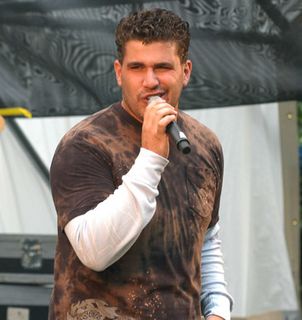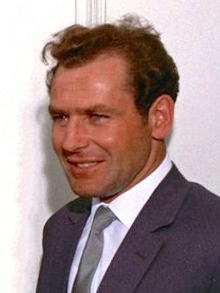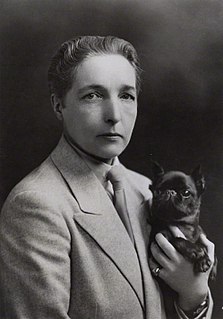A Quote by John Glenn
It was the time of the Cold War and so there were was a lot of pressure on the - to get going and the Russians were claiming that they were - Soviets were claiming they were ahead of us in technology. And so it was against that backdrop that the early space flights took off.
Related Quotes
We thought that the odds of things working OK were up in the upper 90 percent or we wouldn't have gone. But the - there were some problems cropped up on the flight but was able to take care of those OK and - although they were things that we hadn't really trained that much for. But it was the time of the Cold War and so there were was a lot of pressure on the - to get going and the Russians were claiming that they were - Soviets were claiming they were ahead of us in technology.
The advertising men made it clear that there were two ways of looking at ideas in a war against fascism. Those of us who were working on the project believed ideas were to be fought for; the advertising men believed they were to be sold. The audience, those at home in wartime, were not 'citizens' or 'people.' They were 'customers.'
I was a woman and younger. I started spending a lot of time in the mall doing a lot of qualitative research and really watching what consumers were doing. Were they gravitating towards the sales racks, or were they looking at the new fashions? Were they there to shop, or were they there to socialize?
When Russians were having troubles, the Space Shuttle supported the Space Station Mir bringing up much needed supplies and replacements, critical spares, really. That they were able to keep their space station going for much longer than they would have without us. So, I think that shows the value of international cooperation.
For 40 years we were led to think of the Russians as godless, materialistic and an evil empire. When the Cold War ended, we suddenly discovered that Russia was a poor Third World country. They had not been equipped to take over the world. In fact, they were just trying to improve a miserable standard of oppressive living, and couldn't. They had to spend too much on arms build-up. We didn't win the Cold War; we bankrupted the Russians. In effect, it was a big bank exhausting the reserves of a smaller one.
The story of our band is that we were this relentless touring band in those early years. We were leaving day jobs and going off on the road and having fun and seeing the country for the first time. We were playing Chinese restaurants and basements and record stores and houses. We were crashing on floors and it was all new and exciting. It was like a vacation. It didn't feel like work. I couldn't wait to go on tour back then. I would be sitting at my day job or my apartment, just itching to go. There were so many adventures that were about to happen.
Go back to the Bible, the Old Testament. I mean there were people who we would call intelectuals, there, they were called prophets, but they were basically intelectuals: they were people who were doing critical, geopolitical analysis, talking about the decisions of the king were going to lead to destruction; condemning inmorality, calling for justice for widows and orphans. What we would call dissident intelectuals. Were they nicely treated? No, they were driven into the desert, they were imprisoned, they were denounced. They were intelectuals who conformed.
































